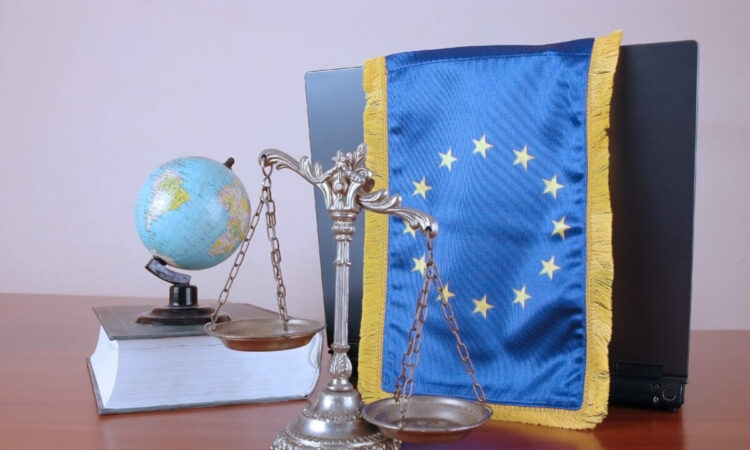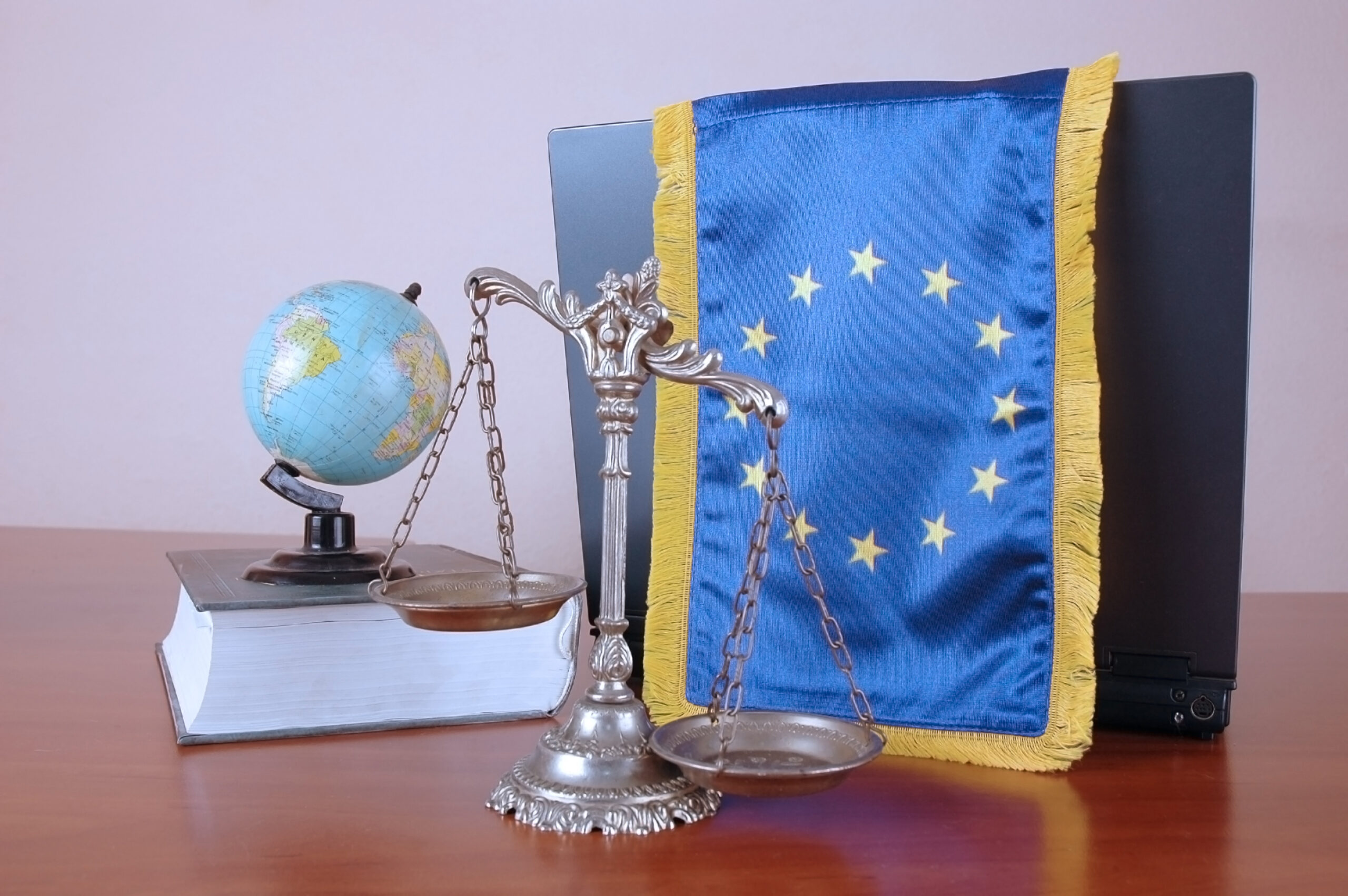
“The leaked proposal takes what has been arms-length negotiations backstopped by judicial process and places the entire standard setting apparatus in the hands of a continent-wide bureaucracy that will by its very formation tip the balance in favor of implementers and away from innovators.”
 The European Union is reportedly considering sweeping new regulations for the licensing and litigation of standard essential patents (SEPs), which make fair-minded observers wonder whether any sane adults are in charge at the European Commission (EC). The EU’s proposed new regulatory regime is scheduled to be released on April 26 by the Directorate for the Internal Market, Industry, Entrepreneurship and SMEs (DG GROW) of the European Commission (EC). And recently leaked drafts suggest that proposal will contain sweeping new regulations that will effectively put an end to the licensing and litigation of SEPs as it exists today.
The European Union is reportedly considering sweeping new regulations for the licensing and litigation of standard essential patents (SEPs), which make fair-minded observers wonder whether any sane adults are in charge at the European Commission (EC). The EU’s proposed new regulatory regime is scheduled to be released on April 26 by the Directorate for the Internal Market, Industry, Entrepreneurship and SMEs (DG GROW) of the European Commission (EC). And recently leaked drafts suggest that proposal will contain sweeping new regulations that will effectively put an end to the licensing and litigation of SEPs as it exists today.
According to leaked drafts, the proposed regulatory regime will mandate that SEP owners register their patents in a database maintained by the EU Intellectual Property Office (EUIPO), making the EUIPO the sole arbiter of all SEPs. The EUIPO will determine what patents are actually standard essential through the performance of so-called “essentially checks”. The EUIPO will determine royalty rates for the licensing of SEPs, it will mandate public disclosure of licensing agreements, and it will prohibit the licensing or litigation of any potential SEPs that are not registered, confirmed as essential, and designated with a royalty rate set for all the relevant SEPs. In other words, the EUIPO will take over completely from top to bottom insofar as the litigation and licensing of SEPs is concerned.
Oh, the Irony!
As the EC is set to debate the wisdom of a multi-industry takeover that will render meaningless FRAND (i.e., fair, reasonable and non-discriminatory) licensing promises in favor of authoritarian decrees, the European Union continues to march forward with an unfair trade practices case against China at the World Trade Organization (WTO) asserting “Chinese policy is extremely damaging to innovation and growth in Europe” because European Technology companies are deprived of “the possibility to exercise and enforce the rights that give them a technological edge.”
As explained by the European Commission in February 2022:
Since August 2020, Chinese courts have been issuing decisions – known as “anti-suit injunctions” – to exert pressure on EU companies with high-tech patents and to prevent them from rightfully protecting their technologies. Chinese courts also use the threat of heavy fines to deter European companies from going to foreign courts.
This has left European high-tech companies at a significant disadvantage when fighting for their rights. Chinese manufacturers request these anti-suit injunctions to benefit from cheaper or even free access to European technology.
Fourteen months later, and with the dispute between Europe and China heading toward adjudication, the European Commission is poised to next week begin to advocate for the government takeover of SEP disputes in a manner that would strip patent owners of the right to sue for ongoing patent infringement unless and until their SEPs are registered, certified as actually essential—a matter that is currently the province of negotiation and ultimately judicial determination—and the requested royalty falls within some acceptable range.
Even the action taken by the Chinese in the ongoing WTO dispute pales in comparison to the brazen and schizophrenic property rights grab anticipated by DG GROW.
The Chinese are being targeted at the WTO for issuing anti-suit injunctions, which would require the litigation of SEPs to take place in China and are a Chinese attempt to take over all SEP licensing and litigation—but at least it is in the context of a litigation, the fairness of which is obviously in issue. But the leaked proposal takes what has been arms-length negotiations backstopped by judicial process and places the entire standard setting apparatus in the hands of a continent-wide bureaucracy that will by its very formation tip the balance in favor of implementers and away from innovators.
The European Commission is ostensibly very concerned about China standing in the way of the rights lawfully obtained by European technology companies, and at the very same time the European Commission is in favor of a top to bottom, soup to nuts takeover of standard essential patents regardless of underlying technology. What is the European Commission thinking, if anything? No, China, you must stop doing what you are doing because we want to take over complete and total control of SEPs specifically, and as a result, all standard setting and related technological innovation more generally? This level of hypocrisy is special even for government bureaucrats.
In a Post-Property Rights World, Innovators Will Not Use Patents
There is an extraordinarily ignorant view of the world that suggests that innovators innovate, and it doesn’t matter whether they can make money innovating they will still innovate because innovators innovate. Obviously, that is not true.
Innovators innovate if and when capital markets support their endeavors in the first instance, and consumers ratify the desirability of the innovations brought to market. In a market where innovators are unable to achieve sufficient payment for the cost of innovating the capital markets shrivel because investors find it safer, if not more lucrative, to invest elsewhere. It is that simple.
Patents are the lifeblood of innovation because they are the onramp to the superhighway of investment, and ultimately to the revenue that makes the risk vs. reward calculus at least tolerable. Make it too difficult to derive sufficient revenues from innovation and investors will force even those innovators who want to keep innovating to do other things and make different choices. For some that will be to eschew innovating altogether, for others it will be to pursue different types of innovation that require less capital and can be protected via proprietary mechanisms other than the full disclosure of a patent portfolio.
For those who will keep innovating once governments have taken any semblance of property rights away and instituted a bureaucratic agency scheme in its place, we can expect a retrenchment into trade secrets and the rise of siloed innovation in lieu of cross platform, foundational technologies that are currently implemented in standards.







